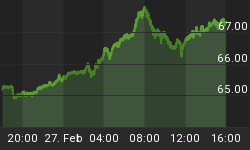The European Union is facing a similar set of events as those leading up to the 2008 US financial crisis. In 2007/08 the US economy was teetering on the brink of recession and the talk among many was that of a goldilocks soft landing. Economic data was still somewhat positive including job growth while equity markets were still holding up. The housing market was beginning to show signs of exhaustion. Manufacturers were confronting rising input costs while consumers were paying more at the pump. The Federal Reserve introduced a new chairman who tried to calm markets with his infamous quote on March 28, 2007, "the impact on the broader economy and financial markets of the problems in the subprime markets seems likely to be contained."
Today Europe is faced with a subprime crisis of their own in terms of sovereign debt. Greece and Ireland have been bailed out and Portugal is only weeks from joining the esteemed list. Spain and Italy are a shock event away from joining as well. The EU also has their overconfident leadership as witnessed by the ECB Chief Economist Jurgen Stark on July 9, 2010 "The worst is over" (for Europe's sovereign debt crisis).
According to a 2009 BIS report EU creditors had over 1.5 trillion euros in exposure to Spain, Ireland, Portugal and Greece. Of that amount, Germany and France accounted for 493 billion euros and 465 euros respectively. This is not a PIIGS "problem." In reality the debtors have equal or greater negotiating power over the creditors. TARP bailed out the insolvent banks at the expense of the taxpayer while the EFSF is bailing out the German and French banks at the expense of the PIIGS taxpayer. The similarities don't stop though.
The EU produced positive economic data in the latter part of 2010 while the euro was trading on average 1.28 (eur/usd). Over the past six months the euro has traded 6% higher at 1.36 which will reverse that positive trend. The impact of a rising euro on export driven economies like Germany which have been the only real source of growth in the EU will be negative. Rising input costs have been a worldwide phenomenon of late and the EU is not immune. Watch for shrinking corporate profits in the near future. The consumer is not immune either as record gas prices are now hitting the pumps across the EU. What will the shock event be though? In 2008 it was Lehman.
The US was able to delay the inevitable after Bear Stearns and so did the EU with Greece. Will Ireland be the Lehman failure that forces a massive hit to creditor and not taxpayer balance sheets? If so it will force a similar credit contraction among various credit facilities from commercial paper, interbank lending and more as witnessed in the US in 2008. In July 2008 oil was moving up very quickly until topping at 147 on July 14 (Bastille day, another similarity), just months before Lehman failed. Today as the global economy faces rising oil prices, the impact on the EU are far greater with Ireland and Italy alone importing over 20% of oil from Libya. With Libyan oil production all but shutdown, it is arguable that $147 oil has already arrived.
The US economy will not be immune to a sovereign debt crisis as the EU was notimmune to the subprime crisis. It is not a "Greek debt problem" noris it a "Middle East problem." The world is more connected todaythan ever before in history. We have seen this movie before and as we allknow the sequel is usually far worse than the original.















